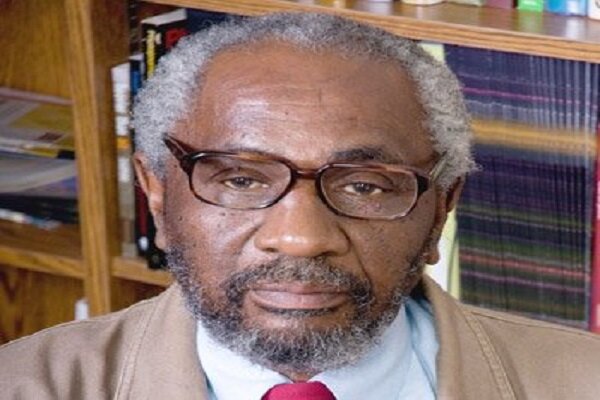Electoral College thoroughly undemocratic: American professor

TEHRAN – An American professor says that Electoral College, which is partly rooted in slavery, is a completely undemocratic institution.
"The electoral college, which is partly rooted in slavery, is a thoroughly undemocratic institution and makes a mockery of democracy in America," Robert C. Smith, a professor of political science at San Francisco State University, tells the Tehran Times.
Despite its long history of denying people the right to vote based on race and gender, today America portrays itself as the world's leading democracy.
Americans voted on Tuesday for the presidential election. The incumbent president, Donald Trump from the Republican Party, faced Democratic rival vice president Joe Biden.
But it seems that the elections would not run smoothly this time given the potential threat to the smooth running of the vote.
Some Americans believe that antiquated and outdated constitutional institutions like the Electoral College can undermine the voices of ordinary people.
In the 2016 presidential election, Democratic candidate Hillary Clinton garnered more national votes; however, she lost to Trump due to Electoral College.
Professor Smith believes that such an electoral system should have been abolished before.
"It should have long ago been abolished, but it takes an amendment to the Constitution which it makes virtually impossible to abolish, given the supermajorities required in Congress and the states," Smith says, adding, "It may, along with the unrepresentative Senate, pose a major threat to the legitimacy of the democracy and a system crisis in America."
"The Electoral College, which is partly rooted in slavery, makes a mockery of democracy in America."
Asked about some factors that call into question whether America is a democracy, the San Francisco State University professor notes that the election does not call into question democracy in America, "but the issues of voter suppression, Trump's unwillingness to say he will accept the outcome of the election if he loses, his unwillingness to assure a peaceful transfer of power, the possibility the outcome will not be known on election night, the prospect of Supreme Court intervention all make this an unusual, controversial and messy election, but the American-such as it is- is not in question."
Describing the Supreme Court lawyers as "politicians in robes," Smith argues that the court has a role in U.S. elections inconsistent with democratic principles, and more so than the historical normal, is highly partisan.
Some restrictions were put on voters in Texas, a move which got some experts to say that battle playing across America is, in some ways, a continuation of a centuries-long fight over access to the franchise.
Last month, Texas's governor, Greg Abbott, a Republican, abruptly issued an order that limited each county in the state to offer one ballot drop box.
In this regard, the American academic believes that "what happens in Texas and elsewhere in the nation is part of a long, sordid history of vote denial and suppression in the U.S., which has become increasingly blatant in recent elections."
Overall, it seems that the Tuesday election did not proceed as was predicted, and no one knows what will happen.
However, Smith emphasizes that "the polls are generally accurate and trustworthy; they accurately predicted the popular vote outcome in 2016."
Underneath it all, many see a Machiavellian approach by the ruling party. It wants to preserve power by making it harder for certain groups like minorities, young people, and the poor to vote.
